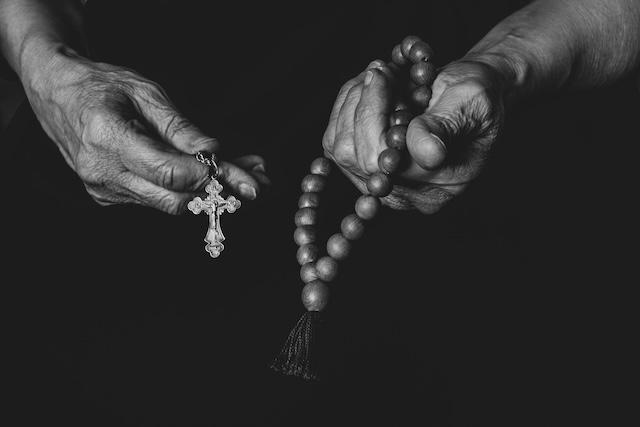Guest column: When hyperbole becomes hypocrisy
Published 8:01 am Thursday, July 24, 2025

- Religion should not be used to attack the vulnerable. (123RF)
“Love thy neighbor as thyself.”
That wasn’t a suggestion. It wasn’t conditional — based on citizenship, health, or ideology. It was a commandment. And it’s not a value exclusive to Christianity. In Islam, the Prophet Muhammad declared: “None of you truly believes until he loves for his brother what he loves for himself.”
Yet here we are — deporting the desperate, dismantling Medicaid, trimming food assistance — while proclaiming Judeo-Christian values and shouting “God bless America.” If “faith without works is dead” (James 2:17), then what is belief without basic compassion? Are we still our brother’s keeper — were we ever?
Trending
All major world religions share a call to love, share, and care. To walk with the downtrodden. To clothe the naked, feed the hungry, and welcome the stranger. These aren’t metaphors. “I was a stranger, and you welcomed me.” (Matthew 25:35). But today we build legal walls and bureaucratic barbed wire, often in the name of sovereignty or security. It’s hard to square that with the Quran’s instruction: “Do good to parents, relatives, orphans, the needy, the near neighbor, the distant neighbor, the companion at your side…” (Quran 4:36). Neither scripture suggests checking someone’s documentation before offering mercy. In Hinduism: “The best way to find yourself is to lose yourself in the service of others.” (Bhagavad Gita 3:19, interpreted)
And what of the sick? Medicaid — flawed, but vital — was designed to catch those who would otherwise fall. Yet many leaders now seek to shrink it, as if health were a luxury item. Would Jesus have denied healing because of a lack of insurance? Would the Prophet have charged the sick? “Whatever you did not do for the least of these, you did not do for me.” (Matthew 25:45). Moral clarity doesn’t get much plainer.
The same goes for hunger. SNAP isn’t charity — it’s survival. Reducing it isn’t fiscal responsibility — it’s spiritual failure. “He who oppresses the poor shows contempt for their Maker.” (Proverbs 14:31). And Islam reminds us: “He is not a believer whose stomach is filled while his neighbor to his side goes hungry.” (Sunan al-Kubra). If we take these words seriously, cutting food aid isn’t just bad policy —it’s hypocrisy.
Meanwhile, the rhetoric hardens. Hate has grown bold—voiced not only on fringe platforms but from seats of power. Immigrants are labeled as invaders. The LGBTQ+ community is cast as a threat. People experiencing poverty and the foreign scapegoated for systemic failure. The Bible warns: “The tongue has the power of life and death.” (Proverbs 18:21). Islam teaches: “A kind word is charity.” (Sahih Bukhari). Words are not just sounds — they are signals of the soul, or sledgehammers to the weak.
Some maintain that compassion is a private duty, not a governmental one. But when our policies punish the very people our faiths command us to protect, what exactly are we defending? Government doesn’t stand apart from morality — it reflects it. And right now, the reflection is disturbing.
You cannot wave a Quran, Bible, or any other religious doctrine in one hand and slam the door on the vulnerable with the other. You cannot preach abundance and legislate scarcity and discrimination. If we are to be judged by how we treat the least among us — and all major faiths, say we are — then we are not just falling short. We are failing. We can be better.
Trending
William Barron lives in Bend and is the author of “Lap Around the Sun”, “Joy in Alzheimer’s” and posts on simplebender.com.







